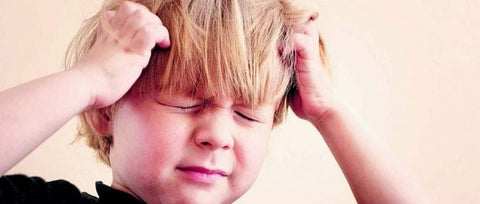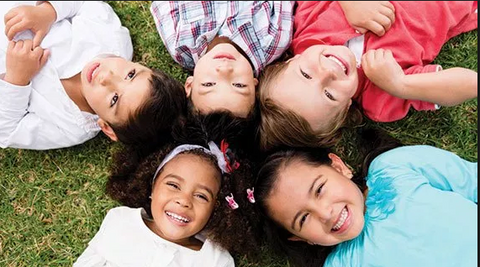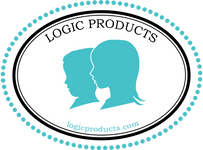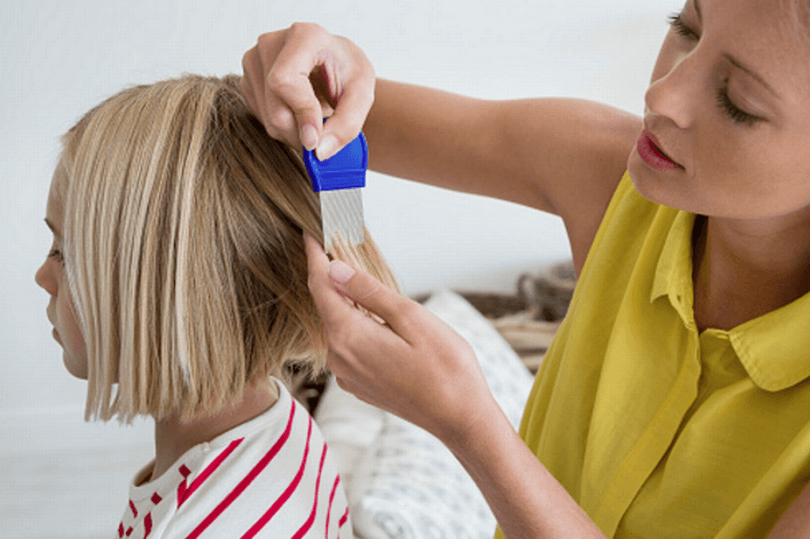1) Be Prepared And 2) Know How To Treat it!
Don’t be caught off guard when lice strikes!
The odds that your child will contract head lice at least once are extremely high. Some 12 million children between the ages of 3 and 12 get head lice every year, according to the U.S. Centers for Disease Control and Prevention, and that number only reflects the lice cases that were reported. So we know the actual incidence of head lice infestation is even higher!
Most parents, however, are completely unprepared when lice happens to their family. I know, because I was one of those parents, and my lack of lice knowledge made treating head lice super stressful and the process of lice treatment more lengthy than it needed to be. Most parents sprint to the local drug store or pharmacy and unwittingly purchase products that no longer work, and for the most part, the only kind that are on the shelf, The OTC (over the counter) lice treatment products. That is exactly what I did, and the product not only did not work, my daughter had a seizure within minutes of it being applied to her head. It was only then that I noticed the possible side effects on the brochure. This product contained a pesticide and the list of potential adverse reactions was alarming. Thankfully, my daughter made a full recovery, but I felt an enormous sense of guilt combined with outrage, that products like this were being sold to unsuspecting parents who simply wanted to get rid of a lice infestation on their child.

In an instant I went from not knowing anything about lice to suddenly wanting to learn all I could. I never wanted to be in the position to have to pour toxic chemicals on my children’s head again, in order to treat lice, and I did not want other parents to have to be either. It was this shocking event that inspired me to set upon this journey to create non-toxic and safe lice and nit elimination products so all parents could have the option to treat lice the safe and natural way - Without noxious fumes, dangerous chemicals, and adverse health risks. Notably, it has been widely reported over the last several years that scientific studies show that 98% of head lice in at least 42 states are resistant to the pesticides used in the most popular over-the-counter lice products, yet doctors and pharmacists continue to recommend these products as the first line of defense, and those companies continue to produce and sell them. This is one of the reasons so many parents are having such a tough time treating lice and getting rid of lice infestations on their kids heads. Simply put, they are using products that are no longer effective to get rid of headlice. Adding to the issue is that the more effective and safe natural lice products are not readily available at most drugstores, pharmacies, and Big Box stores like Target and Walmart. Many people do not even realize there are natural lice remedies that do not contain pesticides
This is why it is so important to be prepared. Just like Band Aids and anti-biotic ointment are kept in the medicine cabinet, it makes a lot of sense to keep a non-toxic enzyme based lice shampoo along with a durable nit comb with stainless steel teeth, on hand too That way you will have exactly what you need in your home when lice strikes, and you won’t have to compromise and end up using something that is ineffective and potentially dangerous. (LiceLogic Clear & Free Shampoo and LiceLogic Clear & Free Eliminator Mousse)
Logic Products offers our LiceLogic Clear & Free Shampoo and LiceLogic Clear & Free Lice and Nit Eliminator Mousse for total lice elimination. Our formulas have been independently tested by the leading lice expert in the country, and since they are made with natural plant based enzymes lice cannot become resistant to them. LiceLogic products are pesticide free, and refreshingly scented with pure and natural Peppermint Essential Oil, so both adults and children love the scent. LiceLogic Products are also safe for daily use, vegan, cruelty free, and will rinse away easily leaving no residue behind. (Available on the Logic Products website and on Amazon)
Part 2: Learn Your Lice Facts! It only takes a few minutes:
The next step in your lice battle plan is to learn your lice facts and understand the life cycle of lice. It only takes a few minutes and becomes so much easier to treat and get rid of lice and lice eggs, also called nits, when you understand the modus operandi of the enemy. This knowledge will help you keep your family and kids lice free by nipping lice infestations in the bud quickly and efficiently.

Important Lice Facts Every Parent Should Know
* Lice infestations have been documented by every civilization in the world.
* The cycle of a head louse has three stages: A nit, also known as an egg, is laid and then hatches into a nymph, also known as a baby louse, which then grows into an adult louse.
* The classic symptoms of head lice are a very itchy scalp often accompanied by vigorous scratching and the sensation of something moving or crawling through the hair.
* In some cases one may find red sores or superficial red bumps or bite marks that appear as small red spots, especially around the ear area and the nape of the neck.
* Head lice do not like bright light so it is best to check in direct sunlight or under a bright light.
* Head lice can be very difficult to spot as they move quickly. The are able to crawl about nine inches a minute, but cannot fly or jump.
* The nymphs (or baby lice) are the hardest of all to see as they are very small and move fast.
* The nits (eggs) are usually oval in shape and can range in color from white to off-white, yellow, brown or reddish.
* If you run your fingers down the hair shaft and feel something like a grain of sand attached to a strand of hair, and it does not move when you blow on it, and cannot be flicked or washed away, it is very likely a nit.
* Head lice feed on the scalp about five times a day.
* They inject a tiny amount of saliva into the head in order to keep the blood from clotting and begin sucking tiny amounts of blood.
* During its lifetime, the female louse can lay up to 150 eggs at a rate of about 6 to 8 per day.
* The life expectancy of a louse is from 3 to 6 weeks, from birth to death. This may vary with temperature, humidity, and climate.
* The female lays eggs close to the scalp, usually no further than on the first ½ inch of hair and may move down the hair shaft as they mature. This is one of the ways to gauge how old a lice infestation is. The further down the hair shaft a nit is, the older it is.
* When an egg or nit hatches, it releases a nymph (or baby louse) while the nit shell (or egg shell) stays attached to the hair. The nit shells need to be manually removed. They will not wash away or fall off on their own.
* Lice are able to survive for only about 24 to 48 hours before needing to feed on a human host.



Leave a comment